
Sudden stomach pain
Where: Around your navel; may be accompanied by nausea, fever, vomiting, loss of appetite, pressure to have a bowel movement or stiffening of the abdominal muscles.
Possible causes: Appendicitis
What to do: Go to the hospital. Appendicitis must be treated quickly or the appendix will rupture and leak infected fluid into other parts of the abdomen. Stiffening of abdominal muscles is a sign that infection is starting to spread.
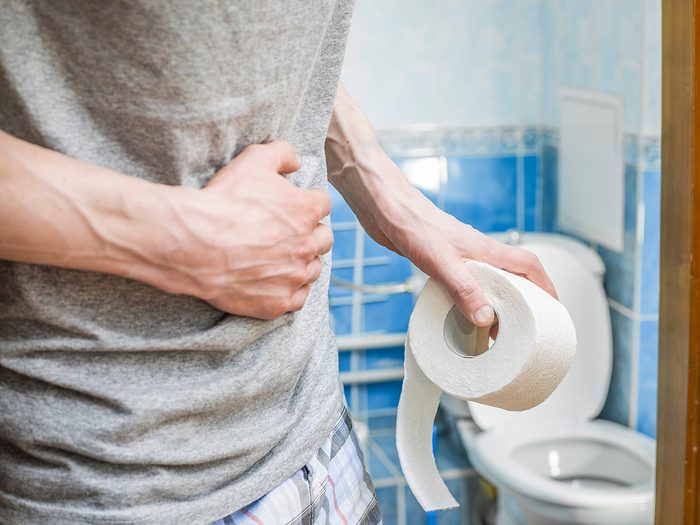
Pain with gas
Where: Around and below your navel accompanied by gas.
Possible causes: Constipation or flatulence
What to do: Take an over-the-counter laxative or anti-gas medication. If pain persists for more than two weeks, see your doctor.
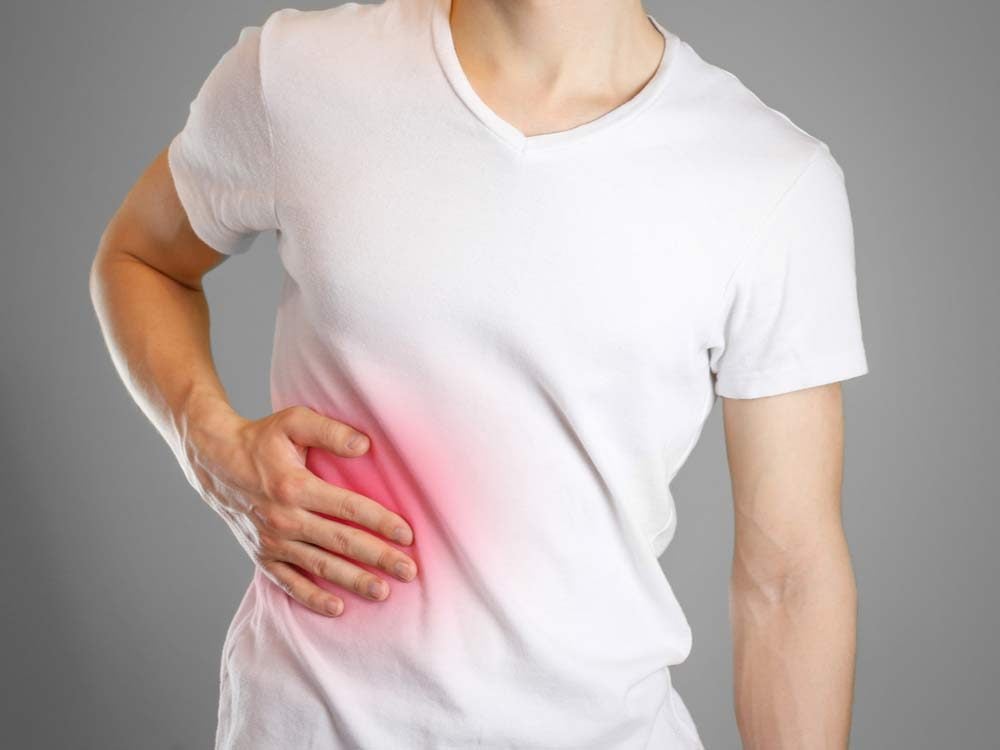
Sudden pain on your right side
Where: The pain on the right side of your abdomen may radiate to other parts of your abdomen or back.
Possible causes: Gallstones or gall bladder inflammation
What to do: If pain persists or worsens after eating greasy foods, see your doctor.
Here are some hidden gallbladder cancer symptoms you should keep in mind.

Sudden pain below your navel
Where: The pain may radiate to either side of your navel.
Possible causes: A colon disorder, a urinary tract infection or pelvic inflammatory disease
What to do: If pain continues to worsen, call your doctor, who may order diagnostic tests or advise you to go to the emergency department.
Learn the truth about urinary incontinence in men.
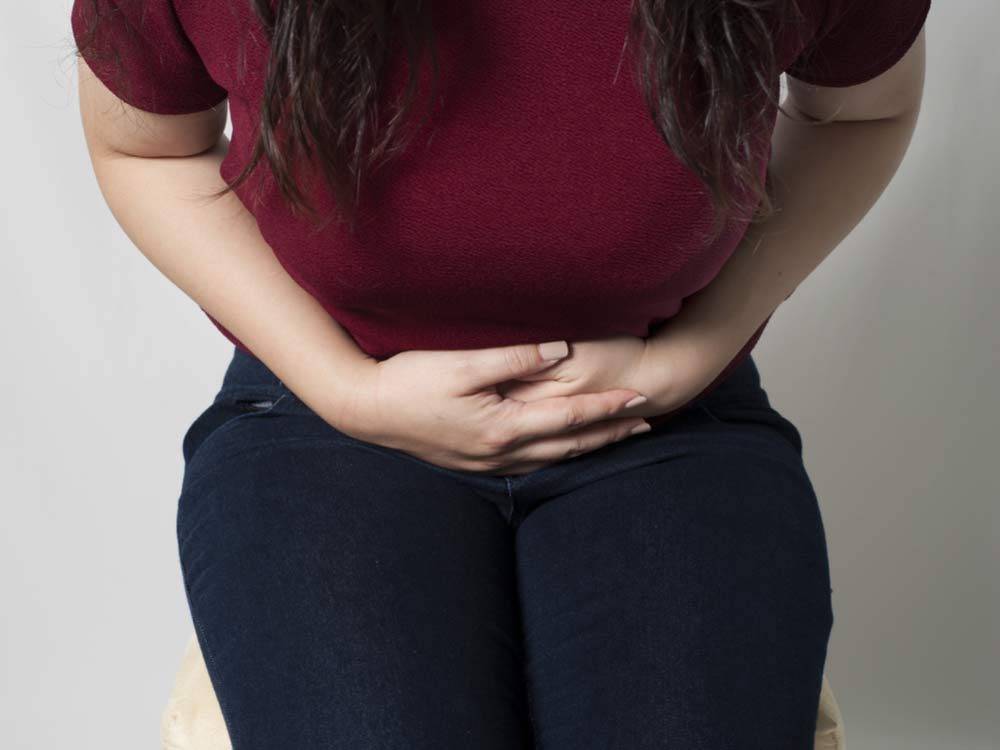
Sudden sharp pain
Where: Near your lower ribs that radiates down your groin.
Possible causes: Kidney stones or, if accompanied by fever, a kidney or bladder infection
What to do: Increase your water intake and call your doctor. Most kidney stones eventually pass on their own, although in rare cases surgery is necessary. If you also have a fever, call your doctor.
Watch out for these warning signs of kidney stones.
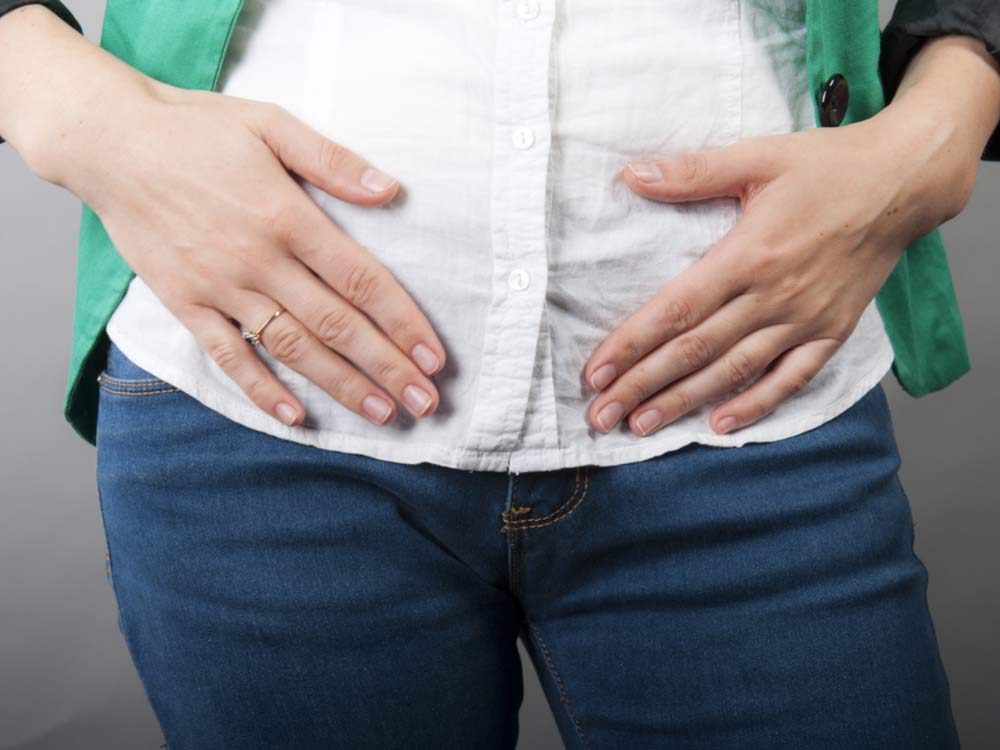
Burning sensation
Where: Just below the breastbone, particularly after a large meal.
Possible causes: Heartburn (reflux)
What to do: Take over-the-counter antacids and avoid large greasy meals. If pain persists for several weeks, see your doctor.
You shouldn’t be ignoring these silent signs of acid reflux.
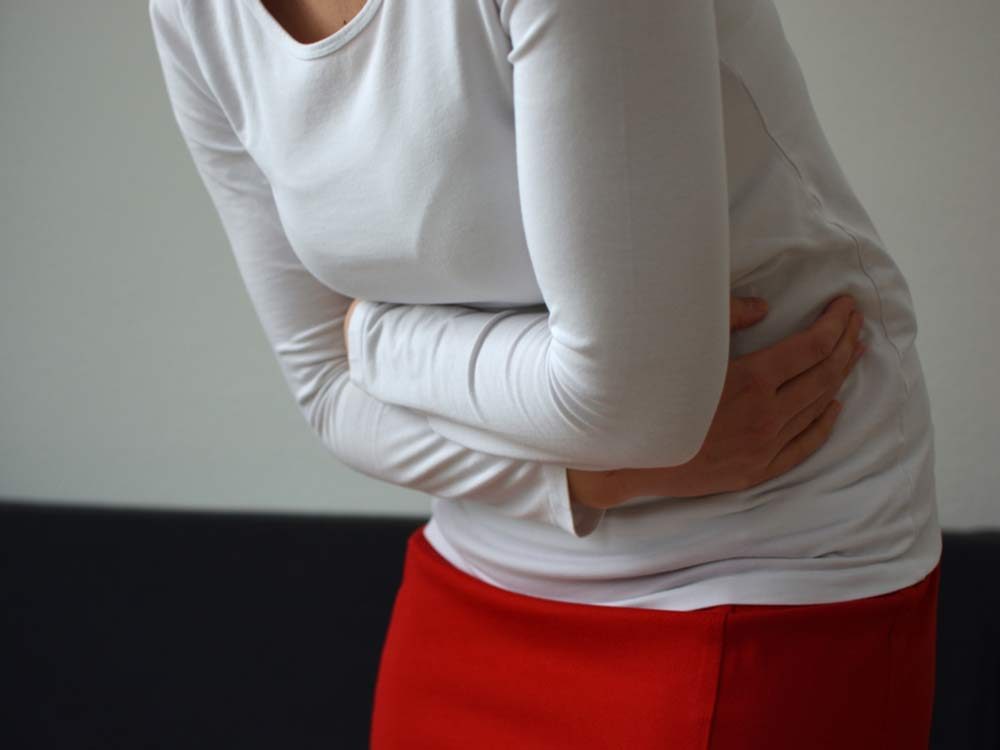
Sudden abdominal pain and tenderness
Where: In your lower left abdomen may be accompanied by fever, nausea or vomiting.
Possible causes: Crohn’s disease, ulcerative colitis, or diverticulitis
What to do: See your doctor, who may recommend a colonoscopy. Long-term treatment may be required.
Try these home remedies that can help cure nausea.
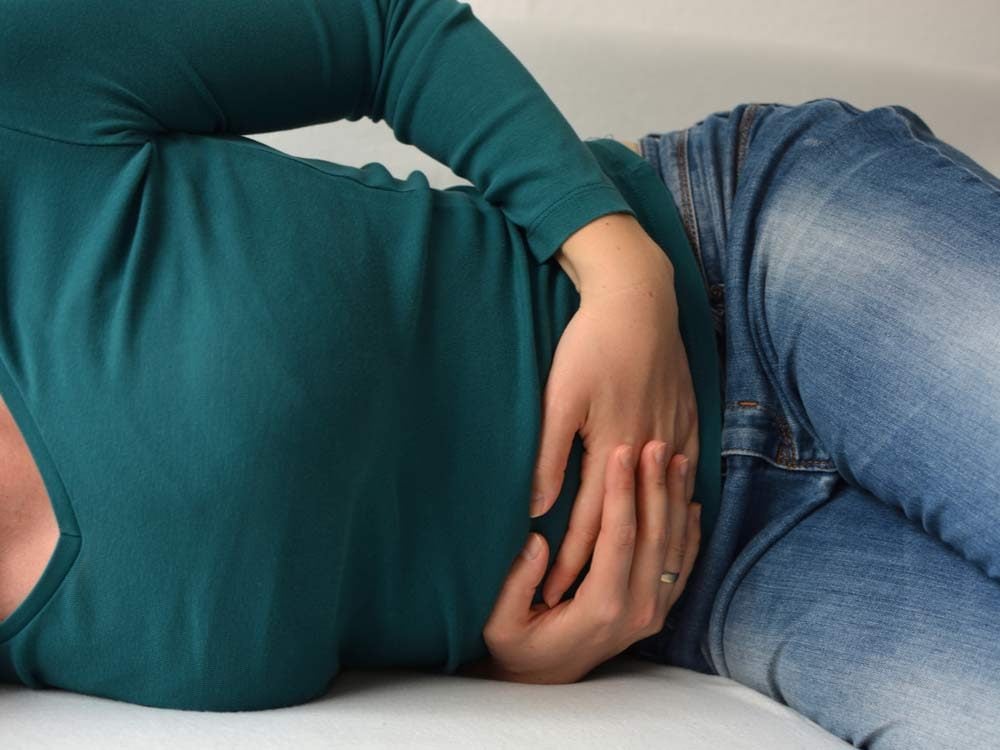
Sudden abdominal pain and blood
Where: Pain in your stomach accompanied by bloody diarrhea, blood in the stool or vomiting blood.
Possible causes: A blockage in the bowel, a perforated appendix or bleeding from the bowel
What to do: These are symptoms of internal bleeding; go straight to the nearest hospital.
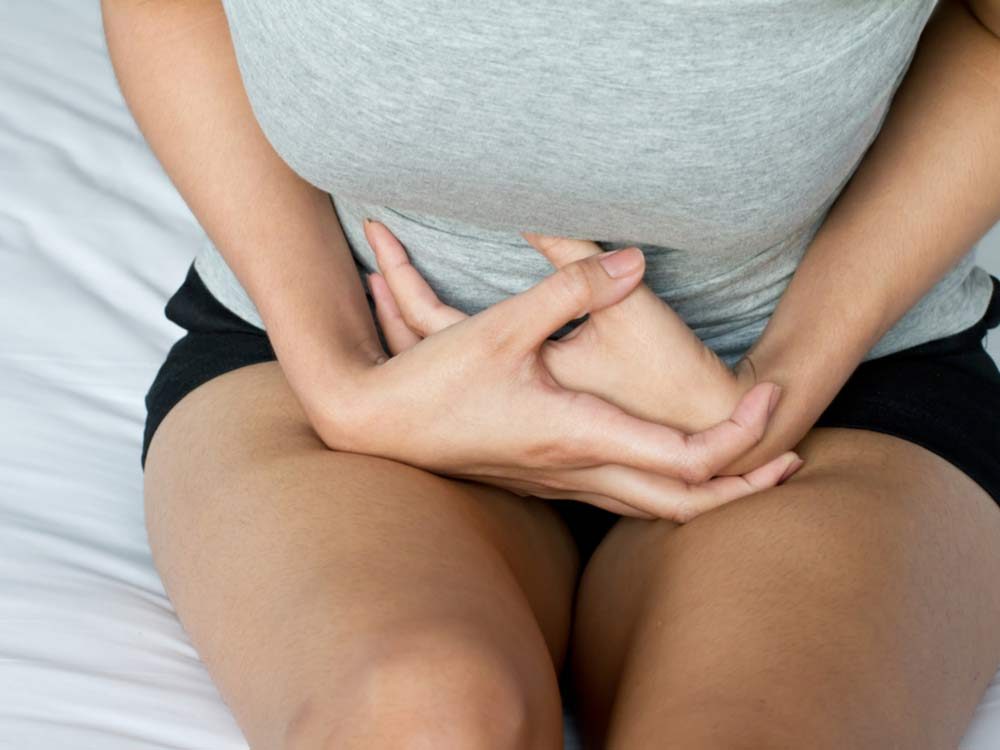
Reoccurring mild pain or discomfort
Where: The stomach pain comes on slowly and continues or recurs for weeks or months, sometimes accompanied by diarrhea, constipation, bloating or flatulence.
Possible causes: A chronic ailment such as lactose intolerance, irritable bowel syndrome, ulcers, food intolerance, Crohn’s disease, ulcerative colitis or coeliac disease
What to do: See your doctor, who may refer you to a gastroenterologist for follow-up.
Check out the best home remedies for constipation.
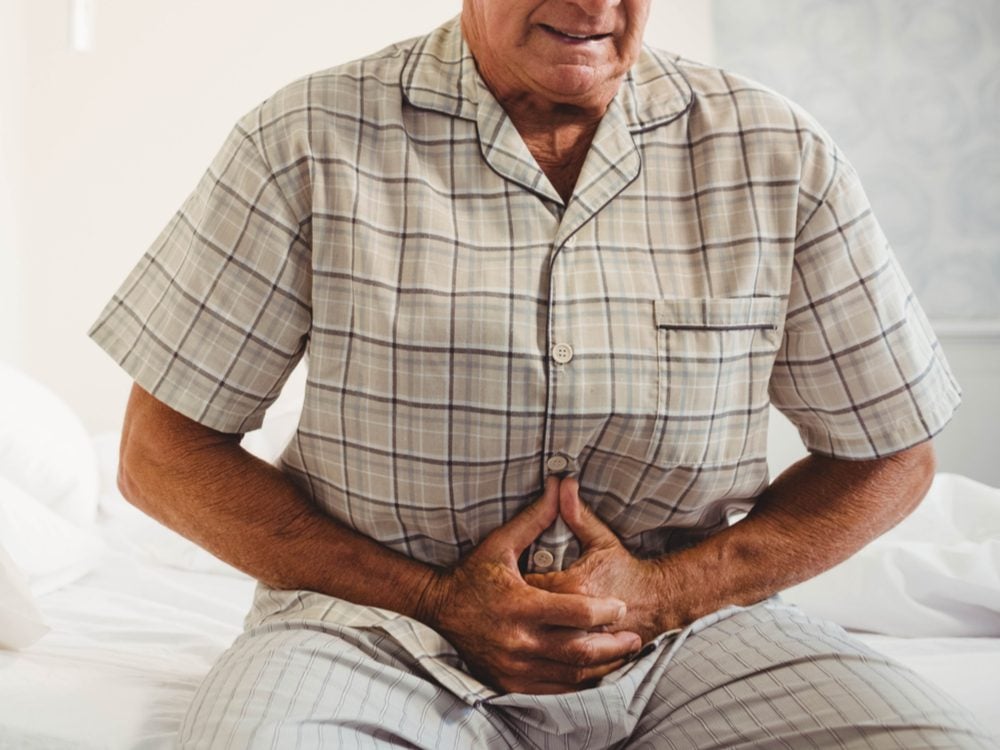
Sudden abdominal pain in an older person
Where: Sudden abdominal pain, especially in an elderly person who smokes or has high blood pressure; may be accompanied by lightheadedness.
Possible causes: Abdominal aortic aneurysm
What to do: The widening of the aorta can cause fatal bleeding. Go to the emergency room immediately.
Next, check out the signs your upper abdominal pain may be an emergency.